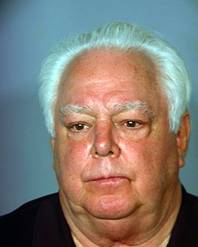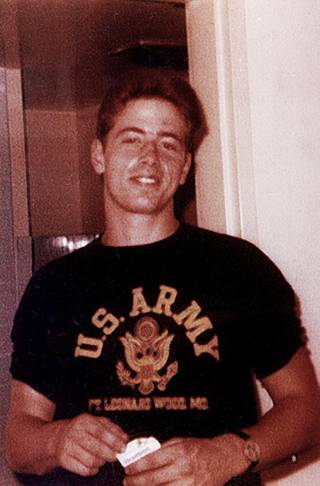Wednesday, July 27, 2011 | 3:30 p.m.

Arthur Jones was arrested July 19 and charged with four felony counts of false identity, identity theft and fraud.
When Arthur Jones, aka Joseph Sandelli, was arrested in Las Vegas last week after living under a false identity for 32 years, many where shocked to learn he had been working as a sports book writer at the Rampart Casino in Summerlin, a job that some think requires a rigorous background check. And it does.
But much like how he was able to obtain a Nevada driver’s license, Jones was also able to bypass an initial registration check by the Gaming Control Board.
Gaming regulators say by the time they took over the process of registering cash-handling casino employees from local law enforcement, Jones’ arrest record was so old that it didn’t pose a problem in obtaining a work card.
The work card system, regulators say, is intended to allow people who have rehabilitated themselves to continue working. Unlike work card applicants who are regularly rejected for recent infractions or attempts to whitewash checkered pasts, Jones disclosed his complete arrest record to the Control Board, regulators say.
Regulations were more lenient in the late 80s, when Jones moved to Las Vegas and applied for a work card. According to an arrest report by the Department of Motor Vehicles, Jones had previous arrests for larceny and other offenses in Florida from 1979 to 1980 under the name Richard Lage and arrests in California from 1980-1986 as Richard Sanders. But they didn’t prevent him from obtaining the work card.
Teresa Zellhoefer, deputy chief of the Gaming Control Board’s enforcement division, said that until 2003, local police departments handled fingerprinting for work cards. Jones’ information and application were forwarded to the Control Board when it took over the registration process in January 2004. Regulators then reviewed the records.
“He did note his arrest history,” Zellhoefer said. “Because of the timing of when we reviewed his application and the date of his offenses, those did not fall in the criteria we use to object.”
And, Zellhoefer said, aliases, no matter how strange or how many, are not uncommon in applications and do not hinder an applicant’s chances.
The criteria for work registration are in Chapter 463 of the Nevada Revised Statutes. The Control Board can refuse an applicant for reasons such as attempting to mislead with an application, being an associate of organized crime or committing a felony or gross misdemeanor in Nevada that relates to the qualifications to work as a gaming employee.
Zellhoefer said the Control Board can approve people who are upfront about criminal pasts that aren’t extensive.
“If they’ve got a long rap sheet with repetitive offenses, that’s something that would cause us to object to their registration,” she said. She declined to specify when an applicant’s criminal past might become obsolete, saying that’s up to regulators’ discretion.
So could a criminal who has a work card keep it? Maybe.
The Control Board only randomly checked renewals because they didn’t have the manpower. Since their system became automated in 2009, regulators have been able to check every new application, renewal and change of location with a full screening. In 2010, 23,000 applications for work registration were processed.
But Clifton Goodenough, the Phoenix man whose Social Security number Jones is accused of stealing, wondered how Jones could get a gaming card. Goodenough had been trying to figure out who stole his Social Security number, and why he was being taxed on an income made at a Las Vegas casino, since 1995.
His personal efforts to clear his name paid off in May of this year, when the office of Arizona Sen. John McCain helped him jump-start an investigation and led to Jones’ arrest. Unfortunately for Goodenough, Jones was able to find a loophole, authorities say.
“His fingerprints didn’t indicate he was deceased or wanted under Sandelli,” Zellhoefer said.
Since the upgrade in 2009, the Control Board has caught more unqualified applicants.
“As the technology has gotten better it has made our job easier,” she said.
Jones was arrested July 19 and released on a $20,000 bail. He is charged with four felony counts of burglary, obtaining and using another person’s personal information, possession of a person’s identifying information and fraud. He could face up to 20 years in prison. His next court appearance is Aug. 23.
Sun reporter Liz Benston contributed to this story.


Join the Discussion:
Check this out for a full explanation of our conversion to the LiveFyre commenting system and instructions on how to sign up for an account.
Full comments policy